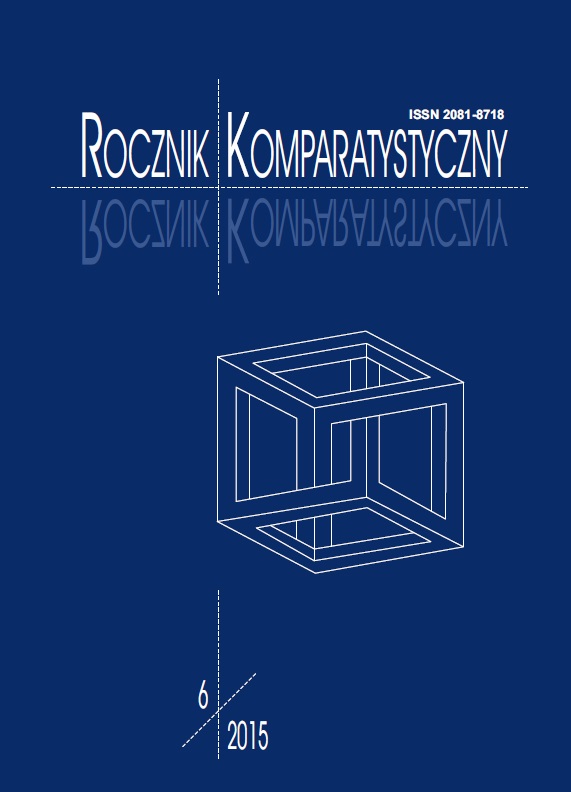Where Do Literary Authors Belong? A Post-postmodern Answer
Where Do Literary Authors Belong? A Post-postmodern Answer
Author(s): Roger D. SellSubject(s): Language studies, Language and Literature Studies, Theoretical Linguistics, Studies of Literature, Comparative Linguistics, Philology, Theory of Literature
Published by: Wydawnictwo Naukowe Uniwersytetu Szczecińskiego
Keywords: comparative literature; modernity; postmodernity; post-postmodernity; literary communication; literary communities; Polish literature; John Beaumont; Salman Rushdie; William Wordsworth
Summary/Abstract: Over the past 600 years or so, perceptions of the relationship between literary authors and human communities have undergone considerable change. We can speak of a modern perception, which prevailed from the Renaissance through to the mid-nineteenth century, of a postmodern perception, which reached its zenith during the last decades of the twentieth century, and of a post-postmodern perception, which is gaining ground in the early third millennium. The modern perception was that a great writer could belong to the entire human race, a view which sometimes had strongly utopian overtones, but which also lent itself to imperialistic agendas. The postmodern perception was that writers represented their own narrower communities, a view which, though it respected the autonomy of political, social and cultural groupings that had hitherto been marginalized, could also reinforce communicationally problematic divisions between one grouping and another. The post-postmodern perception, which the present paper strongly endorses, is that literary writing can be fuelled by both utopian aspirations and a sober realism, in practice helping to bring about communities that are indefinitely large but also non-hegemonic and indefinitely heterogeneous. Perhaps the most important qualification that needs to be added to this three-fold historical schema is that modern writers were no less interested than post-postmodern writers in the isolating disharmonies which can set in between one human being and another, and that they fulfilled a similarly melioristic social function by inviting their addressees to join them in a genuinely human relationship. In the paper, all these matters are explored by reference to Polish literature as seen by Polish literary scholars, and to Anglophone literary texts by, among others, John Beaumont (d. 1627), Wordsworth, and Salman Rushdie.
Journal: Rocznik Komparatystyczny
- Issue Year: 2015
- Issue No: 6
- Page Range: 47-68
- Page Count: 22
- Language: English

